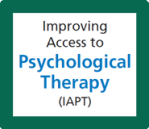Whilst reviewing the traffic to this blog recently, I noticed that “How do you measure success in therapy?” is by far, the most read post I have ever published. I imagine because the title reflects a common search question (up there with “how to measure progressing in counselling” and “how to

Can you measure therapy?
measure the effectiveness of therapy”).
The original post was in fact a critique of the NHS Improving Access to Psychological Therapies (IAPT) programme but it’s high hit rate got me thinking about what people expect from therapy. In some cases it’s more obvious – people with phobias want to be able to go about their life free of the fear that restricts it, the PTSD sufferer wants to stop reliving their trauma and addicts want to be clean and sober. But what about the others? The people who come to therapy with depression they can’t place the reason for, the vague feeling that life isn’t going as it should and why aren’t they happy or the people who want to explore why they keep repeating the same destructive patterns. There is a grim irony in the fact that such clients are so out of touch with their own sense of self that they need Google to tell them what feeling better will look like.
But I guess I shouldn’t be surprised – for all the recent emphasis on mindfulness, wellness and the urging to just “be”, there is a corresponding obsession with relentlessly measuring every aspect of our lives (I’m no different, my fitbit is probably counting my hand movements as I type and upping my step count for the day.) Don’t get me wrong, I understand that measuring performance is necessary and to some extent A Good Thing, but the more we rely on data, the more we lose touch with our own felt sense of what is going on. And that sense of self or rather regaining it, is so much a part of what therapy is about, and, it’s not easy to measure, count or record.
I imagine that’s something Selma Gomez recognised when she took three months out of her career earlier this year to look at the anxiety that was plaguing her; in an industry driven by 24/7 social media presence, she gave herself a huge dollop of self care and took the time out to heal. I feel less certain that Kanye West, bouncing about LA after his reported psychotic breakdown has his priorities quite as straight.
For all the progress made in talking about mental health, the idea still persists that humans beings are hugely resilient, but that which we often applaud as coping is actually just deferred or buried pain. We bruise easily and left unattended these bruises spread and blush until they can no longer be ignored. We might have given our painful experiences a narrative, which allows us to assert that we have “dealt with it”, but the narrative is the packaging, the hook on which we hang the thing that happened, it is not the healing. The healing is messy, we have to unpick the narrative, to go back and experience those feelings and reconstruct the story in a way that acknowledges the truth and helps us make new sense of the world and our place in in. This takes time and is not something that can be done in two sessions, which is what IAPT considers to represent “completed treatment”.
Instead therapy is an exploration and a better measure of the success of this, at least in the early stages, is the therapist you chose to do this exploring with. There is no route map, your therapist might have an idea of the direction you’re heading, but really a good one is just offering to travel alongside you. What’s important at this stage is that they feel like the sort of person you are happy to set out with on those terms. Do you trust them, do you feel like they are listening to you, do you feel that they understand you, or are willing to learn to understand you? Could you tell them when you are angry with them, or when you’re scared or think you’ve taken the wrong path? If the answer to all these is yes, then you’re in a pretty good position to start the real work.
The real work is where it gets messy; this is where you might feel more pain that you signed up for. I often think it is like crossing a wide river, it starts out ok, but by the middle the current is strong and you can’t touch the bottom. This is when you have to keep going, however hard it is and this is when you will understand the importance of the right therapist.
A word about endings. At some point the work is done, or more work is uncovered, you may feel it is time to stop, you may need referring to a practitioner with different expertise. The point is that whilst I believe in open ended therapy, it is important to keep the end in sight. Again, a good measure of success is a therapist with whom you can review where you are, and journey towards that ending together.
IAPT, as part of the NHS, publish annual figures of their performance against key performance indicators which suggest the provide a comprehensive and responsive service. For some people I am sure they do and there are many excellent therapists within the IAPT Programme. However, therapy, the relationship between client and therapist, that is,
where the work is done, is not definable or measurable and doesn’t fit into indicators. Therapy is a leap of faith, take it and learn about yourself, you’ll know if it is successful or not.
This gallery contains 0 photos
 If you’ve read any of my other posts, you’ll have noticed that I have a passing interest in all things IAPT.
If you’ve read any of my other posts, you’ll have noticed that I have a passing interest in all things IAPT.